The concept and procedure for using shared ownership is spelled out in chapter 16 of the Civil Code of the Russian Federation, and on the division of property itself (including apartments) - in art. 252 of the Civil Code of the Russian Federation. In addition, in resolving this issue, it is necessary to be guided by the norms of the Housing Code of the Russian Federation and the Decisions of the Armed Forces of Russia.
The procedure for determining the shares in the apartment
According to the law, shares in an apartment can be determined in the following ways:
1. Based on the current rule of law. For example, as follows from Art. 1141 of the Civil Code of the Russian Federation, the share of heirs in the property of the deceased is equal. So, if the testator had 3 sons, but one of them died and has 2 children, in the case of inheritance by law, the sons will receive 1/3 of the share, and the grandchildren’s grandchildren of 1/6 of the share.
2. Based on the agreement of participants (equity holders, owners). For example, people who invested in buying an apartment can independently determine the size of the share, depending on the size of each contribution. The agreement must be made in writing and registered with the Rosreestr.
If the shares were not determined by the methods described above, then they are considered equal.
In practice, there are cases when the size of the property of one of the equity holders increases due to inseparable improvements made to it in the condition of the apartment. For example, during the tenure of a dwelling, one of the participants reconstructed the engineering systems in the apartment (sewage, heating), installed new plumbing and plastic windows. Accordingly, the market value of the property increased, so that after the decision to allocate a share in the apartment in kind, he received the right to claim a larger area than prescribed in his title documents.
An increase or decrease in ownership is possible by agreement of the owners or in court. In the latter case, a judicial assessment of the state of the apartment before and after the improvements made will be crucial in resolving the dispute.
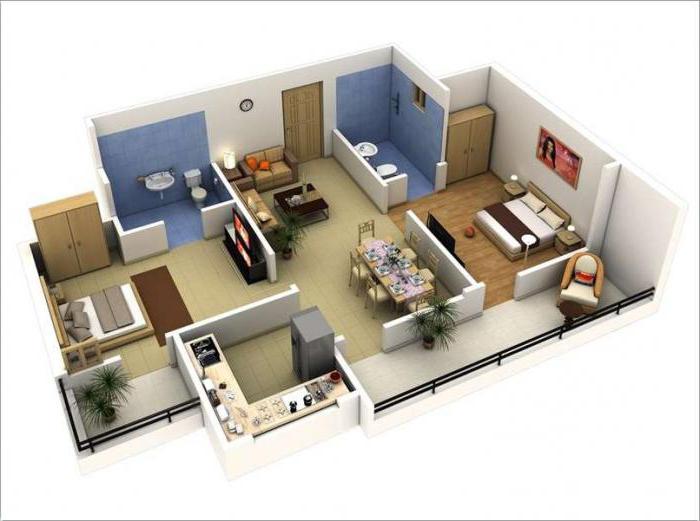
Conditions for the division of the apartment
The current legislation defines the following conditions:
1. A section is possible if it is possible to organize a room suitable for living with a separate entrance and independent communications. That is, the area should be at least 28 square meters. m. (SNiP 31-01-2003), and the work of engineering systems cannot be made dependent on the will of another person. That is why it is impossible to allocate a share in kind in a one-room apartment, since in the premises it will be technically impossible to create an independent connection to the sewage system, water supply, and heating.
In practice, it is possible to divide without any problems only housing of a large area, where there are several sanitary rooms (bathrooms, toilets) or apartments located on the 1st floor. In the latter case, it is possible to arrange a separate entrance and conduct independent communications.
2. Unauthorized redevelopment is not taken into account when dividing the apartment. Moreover, their presence may cause a refusal to grant permits for the allocation of shares.

Section of residential premises in the "communal"
Federal law still does not give a legal definition of the concept of "communal apartment." In fact, it means premises of 5 or more rooms belonging to people who are not members of the same family and have acquired their right independently of others.
At the moment, the laws do not allow the allocation in kind of shares in a communal apartment, since the owners do not have the opportunity to organize premises with a separate entrance and their own communications (toilet, bathroom).
Owners of several rooms located on the 1st floor of buildings may have the only "chance" for the allotment. In this case, you can create a separate entrance and organize a connection to the nodes of engineering systems. Financial costs will be very significant.
Limitations on allocation of a share
Section of the apartment may not be possible in the following cases:
- Allocating a share in an apartment in kind will cause damage to the bearing walls and common areas, as well as create obstacles for people living in the apartment building in using the living quarters.
- Violation of property rights and legitimate interests of interested parties (creditors registered in residential premises, etc.).
- The premises formed as a result of the allotment will be unsuitable for living, according to Art. 16 LCD RF. Most often, it is on this basis that the court rejects the claim for the allocation of the share of the apartment in kind.
Section of the apartment in a "voluntary" manner
According to Art. 252 of the Civil Code of the Russian Federation, the allocation of a share in an apartment in kind by agreement of the parties should be carried out. At the same time, the owners have the right to determine to what extent they will exercise the right to divide residential premises, and the exercise of their authority does not affect the rights of other shareholders.
For example, in 2015, the St. Petersburg City Court in one of the appellate rulings indicated that the allocation of a share in an apartment in kind does not violate the rights and freedoms of other owners (equity holders), since it does not entail a change in the title of another owner in relation to shared property.
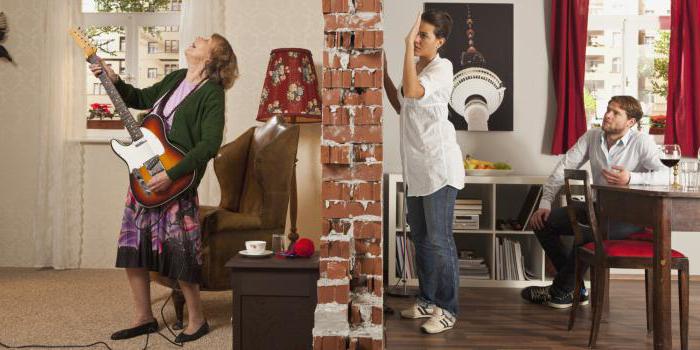
Upon reaching agreement on the division of property in kind, it is necessary to act according to the following algorithm:
- Obtaining permission to change the layout of the apartment, since the section involves the organization of completely new objects (in fact, reconstruction).
- The formation of a separate living space, that is, directly construction work.
- Drawing up a technical plan, taking into account the changes made to the design of the apartment. To do this, contact the cadastral engineer.
- It is necessary to conclude a written agreement with other owners of the apartment on the division of the apartment.
- Submit an application to the Federal Registration Service for registration of rights to an established residential premises.
Features of the apartment sharing agreement
According to Part 1 of Art. 252, the allocation of a share in kind may be made by agreement between the owners. It means a written document drawn up according to the following rules:
- The agreement on the allocation of an apartment share in kind is signed by all owners of the shares. Subsequently, each of them gets its own copy.
- The content describes in detail the subject of discussion on which the parties reached an agreement (allocation of a share with the formation of a separate residential premises).
- It is necessary to provide for compensation payments. In practice, it is rarely possible to achieve a match between the equal size of the share in the property and the area of the allocated premises. For example, the area of the apartment is 90 square meters. m is owned by 2 persons, one of which allocates premises with a total size of 42 square meters. m. He will need to compensate for the "lost" 3 square meters. m
The number of copies of the agreement is equal to the number of owners of shares, but one is intended for Rosreestr. Notarization is not required.
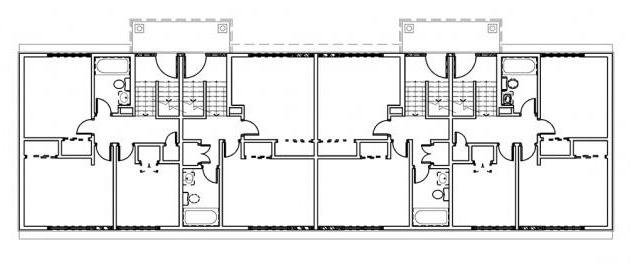
The procedure for registration of the allocated premises
Registration of changes in the ownership of the apartment is required. In accordance with Part 1-2 of Art. 14, part 8, article 41 of Law No. 218-FZ requires the following:
- Statements from all owners of shares. The one who allocated the premises, registers his property, while others make changes to the Unified State Register of Rights about their right.
- Title documents for the apartment, agreement on the division (all copies), passports of applicants and a copy of the technical plan or its identification number are presented.
- Documents on the payment of state duty. An outstanding shareholder pays 2 thousand rubles, and other owners - 350 rubles.
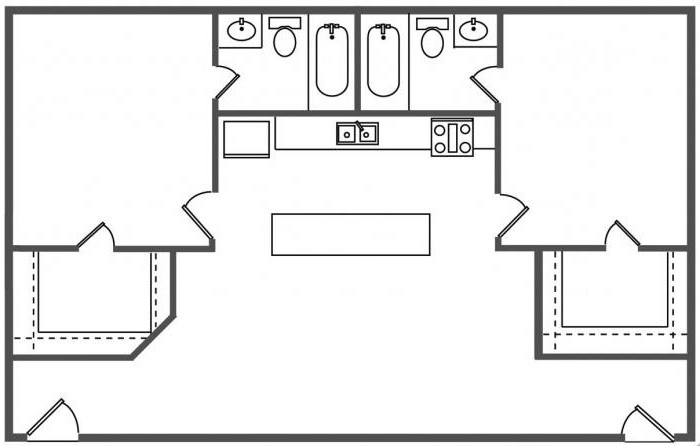
You can register the right both at the Rosreestr Branch and at the MFC. The term for the procedure for amending the Unified State Register is 10-12 days, after which the applicants receive statements of their rights and an agreement on the division of the apartment with a registration mark.
Allocated shares in court
Appeal to the court about the division of the apartment is necessary if it was not possible to reach an agreement with other owners of the shares. The following procedure must be followed:
1. Preparation of the necessary documentation.
- Technical passport in BTI bodies.
- Extract from the Unified State Register with a description of the house where the apartment is located.
- The conclusion about the possibility of allotment in kind of share prepared by the BTI or a specialized organization.
- Copies of title documents.
2. Drawing up a statement of claim.
The document is prepared according to the rules provided for in the Code of Civil Procedure of the Russian Federation. According to Art. 30, he is filed with the district (city) court at the location of the property. In this case, the content must include:
- A detailed description of the apartment and the applicant's share in it (size, property documents).
- Characteristics of the allocated premises with a list of works that will need to be carried out to create it.
- If it is impossible to allocate a share in the apartment in kind, the statement of claim must contain a claim for compensation with the calculation of the amount. For this, a conclusion on the market price of real estate prepared by an expert organization should be provided.
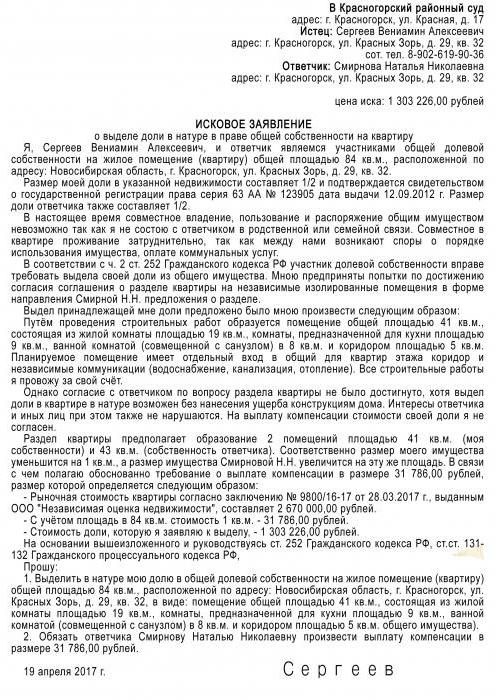
3. Participation in court hearings.
During the consideration of the case, it is necessary to prove that the division of the apartment is technically possible, does not violate the rights and legitimate interests of others. The latter means not only participants in shared ownership, but also owners of other apartments, as well as owners of communal networks and service organizations.
Third Party Claim Section
The lawsuit on the allocation of the share of the apartment in kind may be filed not only by one of the owners, but also by a person who is not related to the premises, but whose property interests are violated by the actions or behavior of the owner.
For example, if it is impossible to execute a cash loan agreement, the creditor may apply to the court with a request to allocate a share in the apartment (or joint property, if the apartment is purchased in a marriage). Moreover, he has the right to declare the following:
1. If the allocation of a share in an apartment in kind is not possible (small area), then the court claims the obligation of the debtor to sell his part of the premises to another shareholder at a market price.
2. If the owners of the share refuse to purchase part of the debtor’s apartment, then it is sold at public auction.
At present, a position has developed in Russian law enforcement practice, according to which the creditor is granted the right to demand the forced allocation of a share in the apartment in case of insufficient funds to pay off debts. Spouses of the debtor, other owners of the apartment in this case do not participate.
Section of the apartment. Case Studies
Courts of general jurisdiction often consider applications stating the allocation of the share of the apartment in kind. Judicial practice on this issue is very diverse, as many factors influence the outcome of each case.
Example No. 1
To resolve the dispute, the court may order an examination to establish the technical feasibility of dividing the apartment, the amount of redevelopment costs and their relationship to the price of the property itself.
Example No. 2
If it is impossible to allocate without prejudice to the entire apartment, the owner has the opportunity to receive payment of the share price by other participants. Moreover, this right is exercised provided that other equity holders agree to take part of the applicant’s ownership in their property.
Example No. 3
As an exceptional measure, the owner may be deprived of his share in the apartment. It is initiated by the creditor, who also owns part of the premises, subject to the following conditions:
- Insignificant share size.
- The impossibility of isolation in kind, confirmed by the court.
- The defendant’s lack of interest in using the property.
So, in the Kemerovo Regional Court, a case was considered where the negative verdict of the judges was affected by the inability of the plaintiff to prove that the defendant (the one who is willing to deprive him of the right) does not want to use the property. And all because the latter, at the time of the court hearing, filed a lawsuit to move into the disputed apartment.
In addition, the statement of claim should state the obligation of the owner of the share to accept compensation for its value, supported by all participants in the property.
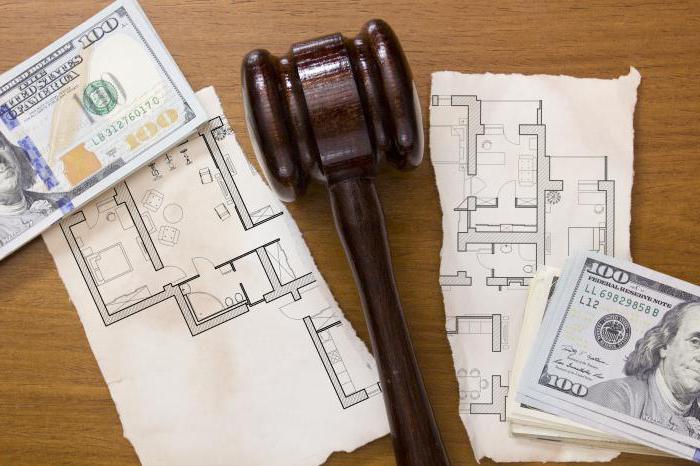
Determining the use of the apartment
According to Art. 247 of the Civil Code of the Russian Federation, the procedure for using, owning an apartment in shared ownership is carried out by agreement of the parties. If agreement has not been reached, it is determined by the court.
Thus, if the owner understands that it is impossible to allocate a share in kind in the apartment, the claim must contain data on the determination of the order of ownership and use of the apartment. It does not imply a natural delineation of shares, and it cannot be filed simultaneously with a lawsuit regarding the division of a dwelling.
There is an extensive judicial practice regarding the determination of the procedure for using residential premises. When filing a claim, the following should be considered:
- According to Art. 23 Code of Civil Procedure of the Russian Federation, the requirements are subject to review by the world court at the location of the property.
- Determining the possibility of owning part of the apartment, the court correlates the actual area of the rooms with the size of the share of the applicant and the defendant. If equality between them is not possible, then the issue of compensation payments may be considered.
- When making a decision, the court takes into account the existing procedure for using the apartment until the moment of the dispute (determines how fair it is), the need of each shareholder, age and state of health, behavior in relation to other owners, etc.
- The determination of the order of use is not related to the termination of the right to use specific residential premises.
The court decision turns the individual apartment into a communal one, but in the conditions of impossibility of its actual division, this is sometimes the only way to end the housing dispute. The established procedure for use allows owners:
- Divide personal accounts and pay for utilities in proportion to their share and the number of residents.
- Fairly share the costs of maintenance and repair of utilities and common property.
That's all you need to know to get a positive court decision.